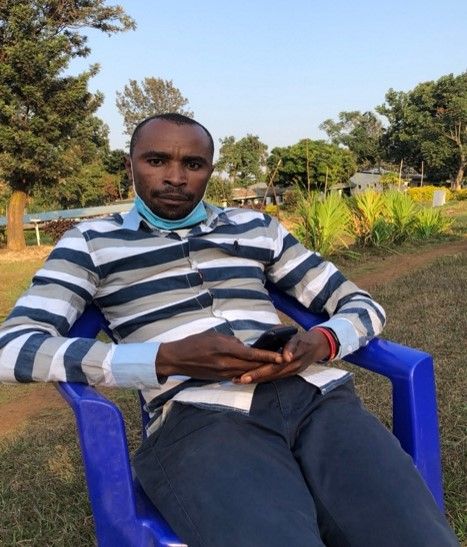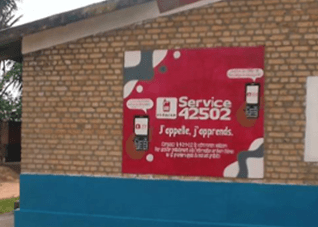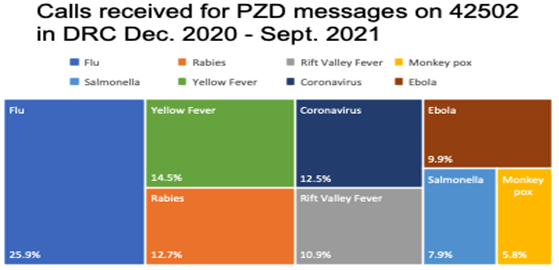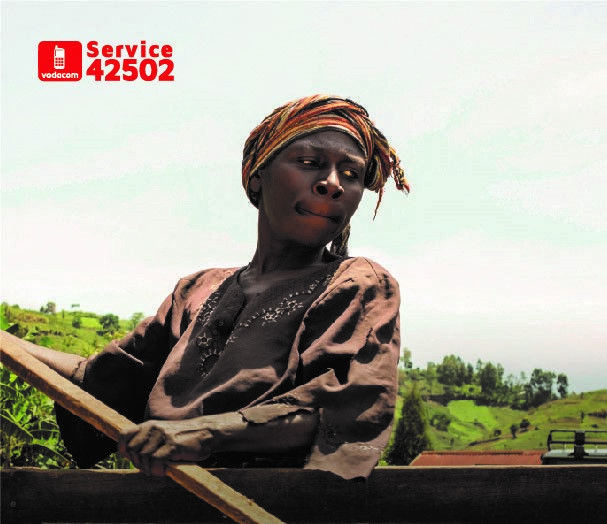Alain, 32, a teacher in the South Kivu region of the Democratic Republic of Congo (DRC) said he is thankful for the Viamo Platform mobile service. Without the service, his community could be cut off from critical information about various health topics related to zoonotic diseases that may not be covered by other sources.
The Platform can be accessed any time of day without an internet connection on his mobile phone.
COVID-19 is just the latest in a long line of zoonotic diseases, or diseases that have jumped the species barrier from animals or insects to humans. In the DRC, zoonotic diseases pose a serious threat, endangering people’s health, lives and livelihoods.
In just the last year, the country has been confronted with another Ebola outbreak, plus Newcastle disease and monkeypox, on top of the current Covid-19 pandemic.

Alain is a teacher in Kalehe in South Kivu. (Credit: Breakthrough ACTION)
This was compounded by the lack of basic medical supplies needed for containment outbreaks.
Many of these diseases cause the most suffering in rural and hard-to-reach locations where people may have lower levels of education and less access to technology. This makes it hard for them to get information about the best way forward if their health is at risk or declining.
That is why it is important to find ways to connect with people to deliver health messages and to find methods that work even when social distancing and lockdowns make personal contact more challenging.
The U.S. Agency for International Development’s (USAID) Breakthrough ACTION program has harnessed the power of mobile technology as an effective solution to the challenge of reaching people in remote areas.
Breakthrough ACTION uses the Viamo Platform’s interactive voice response (IVR) technology to communicate messages about how individuals can protect themselves from some of the most common zoonotic diseases such as Ebola, monkeypox, rabies and even flu.
It is free, mobile-based, works on any type of phone, and available throughout the DRC by dialing just five numbers, 42502 to receive life saving information.
Callers can access any of 15 essential messages, relevant to them, about common zoonotic diseases.
All the content on the service is available in French and in Congo’s four national languages: Linga

A billboard showing the 42502 service in the DRC. (Credit: Breakthrough ACTION)
la, Swahili, Tshiluba, and Kikongo. This eliminates language barriers regardless of where users are in the country or their level of education.
Illiteracy is not a problem with this service because the information is spoken, and users can call as many times as they want if they need to listen to the information again. This makes the information accessible and appropriate for the wider local population.
In 2020, there were about 43 mobile phone subscriptions per hundred people in DRC, although only four percent of people owned a smartphone. In fact, a household in DRC is as likely to have a basic mobile phone as it is to own a radio, which makes this an effective method of reaching large numbers of people, even in rural areas with limited electricity.
The Platform is already well-established in the Republic. It receives about one million callers every month, with more than 17 million messages being heard monthly on subjects such as agriculture, sanitation, financial services and gender equality.
This popularity has translated into success with its health messages, too. The new messages about zoonotic diseases were launched in December 2020. By September 2021, less than a year later, they received more than 25,000 informative calls.
 The success of USAID’s Breakthrough ACTION project demonstrates that it is possible to overcome communication barriers in rural and isolated areas by leveraging digital technology.
The success of USAID’s Breakthrough ACTION project demonstrates that it is possible to overcome communication barriers in rural and isolated areas by leveraging digital technology.
As a result, the Viamo Platform will continue to be a vital resource beyond the pandemic for these otherwise underrepresented communities. Interactive Voice Response is a powerful tool that offers endless possibilities.




